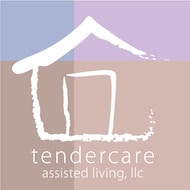Depression in Seniors: How Assisted Living Can Help
by TenderCare Assisted Living
An increased risk of depression could be linked to other health problems in seniors, according to the Centers for Disease Control.¹
Seniors with depression symptoms experience higher rates of physical illness, dementia and functional limitations.2
If your loved one is battling depression or you think they could be, an assisted living residence could provide the support and treatments for this common issue.
How common is depression in the elderly?
According to the latest federal statistics, the rates of depression among older Americans have remained relatively stable for about the past 20 years.
In 2014, 15 percent of women and 10 percent of men 65 and older reported symptoms of depression.2
Many seniors lead happy and healthy lives and do not suffer from depression. The risk factors below could help give an indication if your loved one could be more prone to depression.
“Help is available for seniors with depression. Medications and therapy can be used to treat depression in adults.”

There are a few risk factors to consider in regards to depression in the elderly.
What risk factors are associated with depression in the elderly?
Some of the key reasons seniors are at an increased risk for depression include³:
– Living alone: Living alone with few visitors fosters a sense of loneliness.
– Lack of mobility: As seniors stop driving or lose access to transportation, it becomes more difficult to participate in social activities.
– Increasing isolation: The loss of mobility coupled with friends’ deaths or illnesses begins to erode seniors social networks and support systems.
– Chronic health conditions: The CDC reports 80 percent of older adults have at least one chronic health condition, with 50 percent having two or more. “Depression is more common in people who also have other illnesses (such as heart disease or cancer) or whose function becomes limited,” the CDC report states.¹
How can assisted living help with depression?
Help is available for seniors with depression. Medications and therapy can be used to treat depression in adults.
An assisted living residence could offer ways to mitigate some of the common risk factors for depression. Many seniors and their children or caregivers assume moving to an assisted living residence will cause further isolation. In reality, many seniors who live alone are no longer able to have active social lives due to mobility or transportation limitations. An assisted living residence will offer regular social activities and transportation for outings to allow seniors to be an active part of a community.
If your loved one is dealing with depression, an assisted living residence can provide better access to professionals and treatments to help. Depression is frequently undiagnosed in the elderly because seniors and their families assume the symptoms are a normal part of the aging process.¹ An assisted living residence can help arrange for your loved one to receive treatment for depression.
Depression is a serious illness than can be treated with therapies or medications. If you think you or your loved one is suffering from depression, speak with doctor or certified mental health professional.
If you are located in Denver, Colorado we would be happy to talk with you about whether or not assisted living may be a viable solution for your loved one. Don’t hesitate to contact us.
Additional Resources
- Loneliness and social isolation are important health risks in the elderly
- Depression is Not a Normal Part of Growing Older
- Depression in Older Persons Fact Sheet
References
1 https://www.cdc.gov/aging/mentalhealth/depression.htm
2 https://agingstats.gov/docs/LatestReport/Older-Americans-2016-Key-Indicators-of-WellBeing.pdf
3 https://www.helpguide.org/articles/depression/depression-in-older-adults.htm
